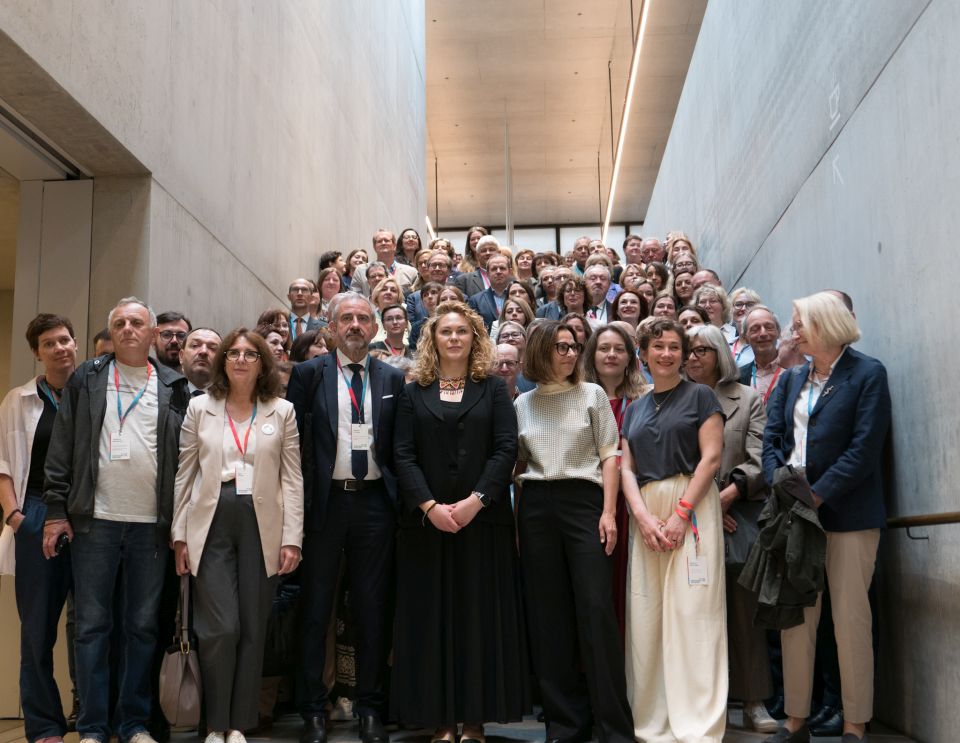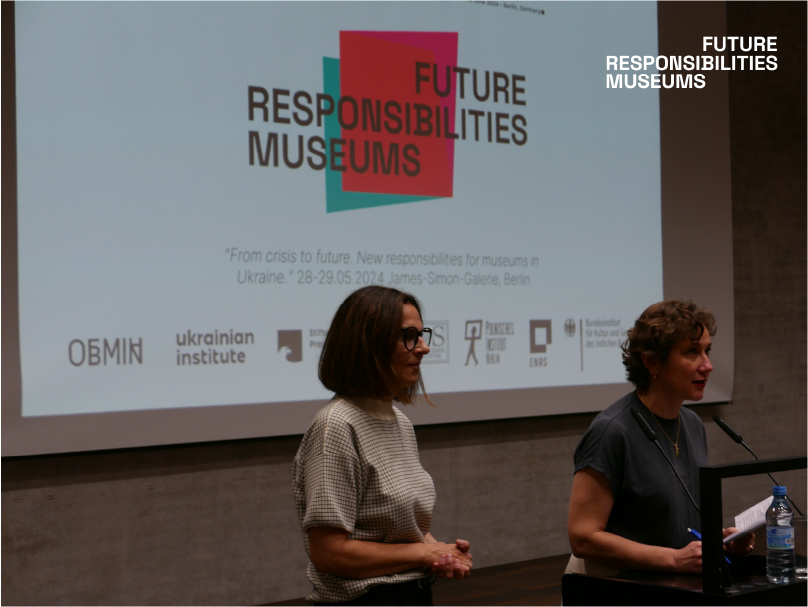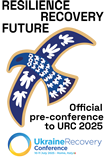FIRST DAY OF THE CONFERENCE IN BERLIN ORGANISED BY OBMIN AND PARTNERS
May, 2024
Over 100 experts from museums from all over Ukraine are participating in their biggest meeting since Russia invaded Ukraine in 2014: The Conference "From Crisis to Future: New Responsibilities for Museums in Ukraine" started in Berlin. Together with 150 representatives of governments and partner organizations, they will work on 10 concrete proposals for the reconstruction of Ukraine and the role museums have in strengthening civil society with the changed needs and expectations of Ukrainians.
The governments of Ukraine, Poland, and Germany are the patrons of this important meeting, prominently held on Berlin’s Museum Island.
On the first day State Minister Tobias Lindner, Vice Minister Anastasia Bondar, and Vice Minister Henryka Mościcka-Dendys opened the conference. Anastasia Bondar stated: "It is important that the word culture is heard at such a large conference. And this is our common achievement. I would like to thank the partners for introducing culture into the international agency. This is a new beginning for us."
Dr. Martin Hoernes, Secretary General of Ernst von Siemens Art Foundation in Berlin stated that they intend to continue supporting joint German-Ukrainian projects and, as he noted: „We do everything to show that even in times of war you have to act unconventionally and quickly and have a sense of responsibility”. Claudia Roth, Minister of State for Culture and the Media in Germany, underlined the continued support of the German government to Ukraine, in all its forms, including culture. During the conference, Milena Chorna outlined the 10 fundamental principles developed by Ukrainian museums during workshops for the Ukraine Recovery Conference, June 11-12, 2024 in Berlin, which can already be read on our page. They want to turn Ukraine into „the best place to live, work and visit” and into the „most inclusive country in the world” in all its aspects - from including disabled visitors and artists to offering museums from currently occupied parts of Ukraine cooperations with other museums so that they can continue their work.
"Ukrainian culture and art is part of the European and world cultural heritage” emphasized Chiara Dezzi Bardeschi - UNESCO representative to Ukraine. Piotr Rypson, Director of the Polish Ministry of Culture, pointed out: "War is the moment when people sober up, look at their eyes, and stand their ground”. Panelists emphasized the importance of digitalizing museum collections, especially in the context of war, and taking care of preserving the national heritage.
In addition to this, the panelists pointed out how much Western societies learn and draw from the dramatic Ukrainian experience.
The governments of Ukraine, Poland, and Germany are the patrons of this important meeting, prominently held on Berlin’s Museum Island.
On the first day State Minister Tobias Lindner, Vice Minister Anastasia Bondar, and Vice Minister Henryka Mościcka-Dendys opened the conference. Anastasia Bondar stated: "It is important that the word culture is heard at such a large conference. And this is our common achievement. I would like to thank the partners for introducing culture into the international agency. This is a new beginning for us."
Dr. Martin Hoernes, Secretary General of Ernst von Siemens Art Foundation in Berlin stated that they intend to continue supporting joint German-Ukrainian projects and, as he noted: „We do everything to show that even in times of war you have to act unconventionally and quickly and have a sense of responsibility”. Claudia Roth, Minister of State for Culture and the Media in Germany, underlined the continued support of the German government to Ukraine, in all its forms, including culture. During the conference, Milena Chorna outlined the 10 fundamental principles developed by Ukrainian museums during workshops for the Ukraine Recovery Conference, June 11-12, 2024 in Berlin, which can already be read on our page. They want to turn Ukraine into „the best place to live, work and visit” and into the „most inclusive country in the world” in all its aspects - from including disabled visitors and artists to offering museums from currently occupied parts of Ukraine cooperations with other museums so that they can continue their work.
"Ukrainian culture and art is part of the European and world cultural heritage” emphasized Chiara Dezzi Bardeschi - UNESCO representative to Ukraine. Piotr Rypson, Director of the Polish Ministry of Culture, pointed out: "War is the moment when people sober up, look at their eyes, and stand their ground”. Panelists emphasized the importance of digitalizing museum collections, especially in the context of war, and taking care of preserving the national heritage.
In addition to this, the panelists pointed out how much Western societies learn and draw from the dramatic Ukrainian experience.





